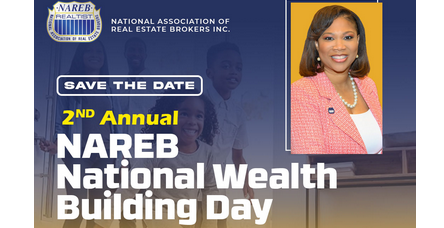[New York City Public Advocate Jumaane D. Williams]
Williams: “The Coronavirus has hindered the ability of New Yorkers to meet their tax obligations over the past three months…The City must act in ways to ease this burden while balancing the budget.”
Photo: Jumaane Williams
New York City Public Advocate Jumaane D. Williams called for the passage of his legislation that would defer the property tax liabilities on certain residential property owners impacted by COVID-19.
The Council’s hearing comes as New York City has begun Phase One of re-opening amid the COVID-19 pandemic and the resulting economic crisis.
Specifically, Pre-considered Intro. 6276 would require the city’s Department of Finance to offer agreements to defer real property tax liability otherwise due and payable as of July 1, 2020, until October 1, 2020. Eligible property owners would own property with an assessed value of $250,000 or less that serves as their primary residence, have experienced economic hardship relating to COVID-19, and have a combined annual income of $200,000 or less. This bill will provide a significant tax relief for property owners, and will apply to 99% of Class 1 homes, 96% of Co-Op Units, and 87% of Condos.
The Public Advocate spoke about the financial burdens facing New Yorkers in this moment, saying “As we all know, the Coronavirus has hindered the ability of New Yorkers to meet their tax obligations over the past three months, and this issue will likely remain for many more to come. The City must act in ways to ease this burden while balancing the budget, as property tax payments are the biggest revenue source that funds public goods and services.”
He added that “In order for us as elected officials to adequately help New Yorkers during this pandemic, we must provide them with resources and assistance that will alleviate their financial worries and safeguard their ability to continue living in their homes.”
PUBLIC ADVOCATE JUMAANE D. WILLIAMSTESTIMONY TO NYC COUNCIL COMMITTEE ON FINANCE JUNE 10, 2020
Good morning,
My name is Jumaane D. Williams, and I am the Public Advocate for the City of New York. I would like to thank the Chair and the Members of the Committee on Finance for holding today’s hearing focusing on the impact of COVID-19 on property owners and the City’s expenditures. Today, the Committee will hear bills to address property tax liability and monitor the City’s use of funds in relation to the Coronavirus pandemic. I support all of my Council colleagues’ efforts and I thank them for introducing these bills. I want to align myself with the Chair’s comment on all of the people we have lost and are going through so much right now. We have communities that are disproportionately affected. But I do want to lift up all communities from all socio-economic communities that are dealing with loss, that are dealing with just a lot. I want to make sure we hear everyone’s voice and stories.
This week the City entered Phase One of reopening, allowing us to get a start on stabilizing our local economy. But our economy does not only depend on our businesses operating; it also depends on the financial stability of our City’s residential property taxpayers. As we all know, the Coronavirus has hindered the ability of New Yorkers to meet their tax obligations over the past three months, and this issue will likely remain for many more to come. The City must act in ways to ease this burden while balancing the budget, as property tax payments are the biggest revenue source that funds public goods and services.
My bill, Preconsidered Intro. 6276, would defer the property tax liability on properties with an assessed value of $250,000 or less owned by certain property owners impacted by COVID-19. I want to make it clear that the $250,000 property value that is required for eligibility is the assessed value, not the market value which is typically significantly higher, of residential properties.
My bill creates a deferral agreement between the City’s Department of Finance and owners of residential property with an assessed value of up to $250k, who have a combined income of $200,000 or less. This agreement defers July’s property tax payment until October, without interest or penalty unless payment is not made by October 15. Co-Operatives must demonstrate that at least 20% of the dwelling units meet the deferral agreement programs criteria. Individuals who may still struggle to pay their property tax liability by October 15th can apply for the City’s Property Tax Aid program, which allows for payments to be made in installments. Pre-Considered Int. 6276 raises the combined income eligibility of these installment agreements from $58,300 to $200,000 for purposes of extenuating circumstances due to COVID-19. This bill will provide a significant tax relief for property owners, and will apply to 99% of Class 1 homes, 96% of Co-Op Units, and 87% of Condos.
Applicants must meet the following additional criteria:
- They must be a property owner with said property being their primary residence.
- Have claimed federal or state unemployment benefits for two weeks or more between March 7 and June 30th of this year or worked fewer than three days, earning less than $504
- Been affected by COVID-19, including but not limited to: (1) Being personally diagnosed or a member of their household was diagnosed with COVID-19 (2) Having to provide care for a family member or a member of their household who was diagnosed with having the virus; (3) Becoming unemployed or partially employed because of COVID-19 or the state disaster emergency;(4) Or being unable to reach their place of employment due to the quarantine being in effect.
If a person’s application is denied by the City’s Department of Finance, they must pay all real property taxes otherwise due on July 1st within 15 days of being notified. Pre-Considered Int. 6276 provides the Department of Finance to promulgate rules to allow for exceptions to these requirements.
My bill does not put the onus on property owners to make themselves aware of this deferral agreement, instead it requires the Department of Finance to conduct outreach by advertising its availability. My bill also requires the Department to issue a report on the deferral agreements, which will be published on the agency’s website no later than November 1st of this year.
I’d also like to take this moment to remind my colleagues and the Administration that renters, like property owners, are struggling right now. The eviction moratorium that is currently in place does not ease the financial burden of tenants. Renters cannot be evicted, but they are still responsible for making payments and can possibly be evicted when the moratorium is over. The most impactful thing we can do to ease the stress of making rent payments at a time when more than 930,000 New Yorkers have filed for State unemployment – and a large number of other jobless New Yorkers are still waiting to be approved for unemployment benefits – is to provide them with rental assistance. I am calling on the Governor, as I have done for many weeks now, to cancel rent for New Yorkers.
In order for us as elected officials to adequately help New Yorkers during this pandemic, we must provide them with resources and assistance that will alleviate their financial worries and safeguard their ability to continue living in their homes. I’d like to thank Noah Brick and Rebecca Chasan from the Council’s Finance Department for their work on this bill, as well as my Legislative Team, Casie Addison- Director of Legislation, and Legislative Associate’s Anika Michel and Brandon Jordan.
I’m eager to hear feedback today of how Pre-Considered Intro. 6276 can be strengthened, and call on the Council and the Administration to solidify their commitment to the financial stability of New Yorkers by supporting this bill.
I really think this bill and the work we are doing defines the right balance. Keeping in mind we need property taxes to do the good work many of the things we are speaking about and New Yorkers are talking about. But it does strike the balance of doing that but not putting the burden on people who can pay it because of what happened. So thank you for this time and I look forward to testimony from the administration.












